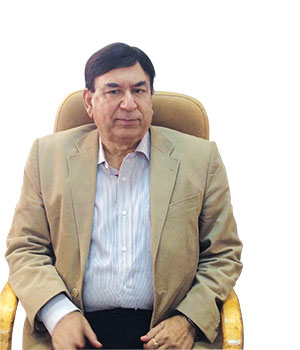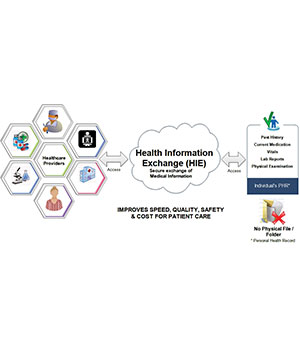
Dr J.B.S Jaggi, Senior Consultant and Unit Head (Orthopaedics) at Fortis Hospital, Gurgaon, in conversation with ENN shares his views on technological trends and role of IT in Orthopaedics
What type of patients do you come across every day?
Nowadays people come with chronic back aches, shoulder and diffused pains; recurring on frequent basis. Then middle-aged patient with chronic aches where a lot is related to high stress levels, lack of vitamin and lack of exercises that causes orthopaedic problems. Two age groups, 25-40 year and 60+, suffer from slip disc and spinal problems. Basically, these are mainly two types of age group of patients I come across. These must be addressed carefully as painkillers wont be helpful in the long run. In addition, the older adults complaint more about wear and tear while for youngsters its back aches due to erratic lifestyle.

How has IT been extremely helpful?
Definitely, due to advent of IT, my practice is hugely dependent on Internet and computers. Paper work is largely reduced now and most things are carried online. This ultimately saves time, money, and efforts. Today people use social media, online portals, and also read a lot on web, iPad, and kindle. Also, IT has helped in maintaining records and journals for longer period, so storage is an advantage. New products are coming up every day, but there is cost attached with advanced medical equipment, surgeries and treatments. The innovative cycle of robotic and navigational technology related to orthopaedics are developing, but gradually. Joint and knee replacement surgeries are done through computer and image system that reduces time.
What are the current challenges faced in orthopaedics?
Biggest challenges in India are misconceptions, superstitions, wide disparity between hospitals and qualityof- care. In addition, lack of public awareness, negligible access to health facilities and also basic knowledge about orthopaedics pose a big obstacle in eradicating orthopaedic problems. Patient education must be well implemented as it is done in the west. And lack of trust on doctors too is another major issue. We are only geared up towards treatment and not for preventive measures. That is because in prevention measures, there is absolutely no money.
What risks are involved in orthopaedic surgery?
Risk of surgery does change, like if it is a hip and knee replacement and the person is diabetic or has high blood pressure then instantly the risk of surgery changes. Also, if anaesthesia is given then the surgery becomes of high importance. Actually, painkillers do not work for longer time. There are huge disparities between implants and stateof- the-start implants.

There is no major or minor risk, but yes risk of surgery increase because implants are both high in cost and state-of-the-art implants.
What would you suggest to people who cant afford high health costs?
I have developed a personal pain clinic, where physiotherapists and counsellors are available. If they think counselling is more important then they are most welcome to use the services. We should be honest enough to test an individuals need and not waste money in treatment. Their issue may or may not require medicines and since painkillers do not work for long, the focus must be to eradicate the problem from its root.
Be a part of Elets Collaborative Initiatives. Join Us for Upcoming Events and explore business opportunities. Like us on Facebook , connect with us on LinkedIn and follow us on Twitter , Instagram.











